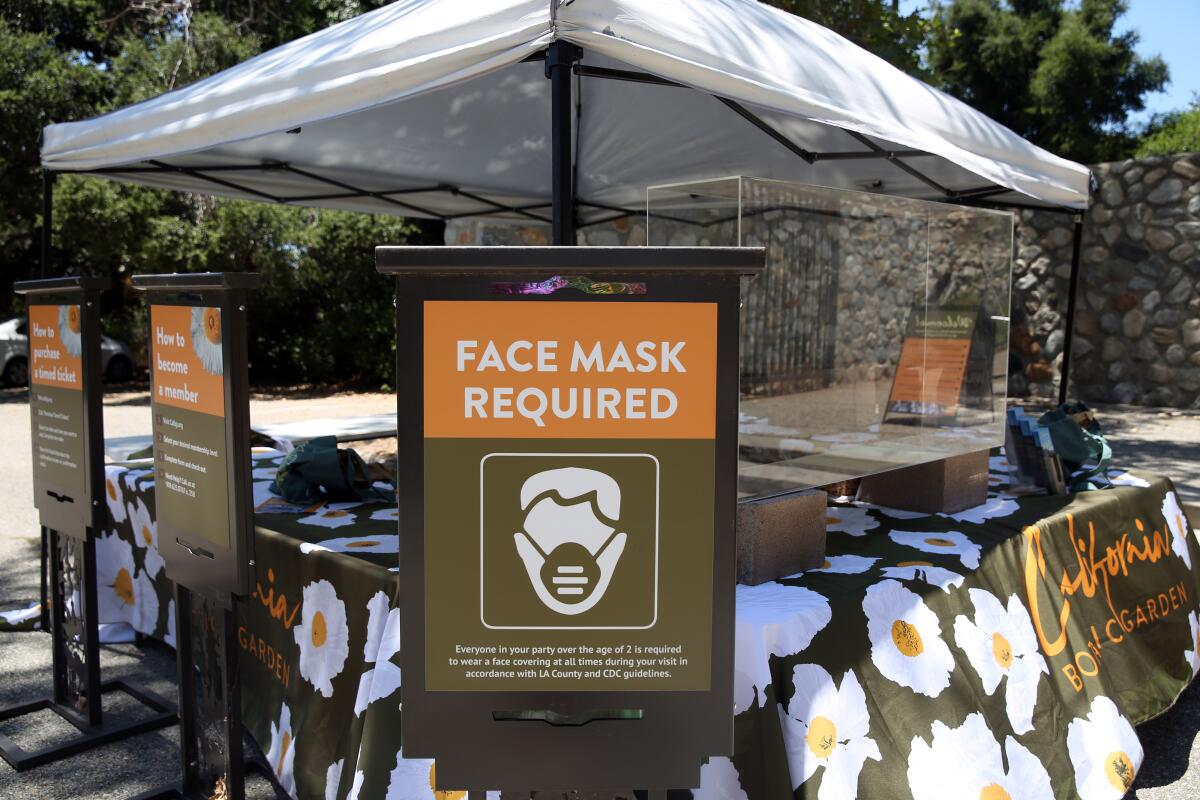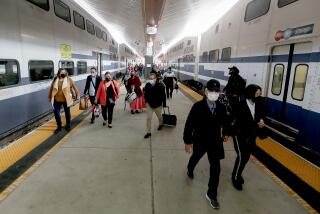Latinos now twice as likely as whites to get coronavirus in L.A. County

Latino residents of Los Angeles County are contracting the coronavirus at a much faster pace than other racial and ethnic groups, and are twice as likely to have contracted the virus than white residents.
“Latinx people are more than twice as likely as people who are white to be infected with the virus. And they also have had a steeper increase in their number of cases,” Barbara Ferrer, director of public health for Los Angeles County, said Thursday.
Black residents of L.A. County are also more likely to have been infected with the coronavirus than white residents, Ferrer said.
For every 100,000 Latino residents in L.A. County, more than 700 have been infected with the coronavirus; and for every 100,000 Black residents, nearly 400 have been infected, according to an age-adjusted analysis by county officials.
By contrast, for every 100,000 white residents, more than 300 have been infected with the virus; and for every 100,000 Asian American residents, about 250 have been infected.
People living in areas with higher levels of poverty in L.A. County are also more likely to contract the virus.
“Communities with high levels of poverty continue to see almost three times more cases than communities with little to no poverty,” Ferrer said.
Of every 100,000 residents living in areas with higher levels of poverty in L.A. County, more than 1,800 have been infected. But for every 100,000 residents living in the wealthiest parts of L.A. County, more than 600 have been infected.
In terms of coronavirus-related deaths, Latino and Black residents of L.A. County are roughly twice as likely to die from the virus than white residents, according to the county’s age-adjusted analysis.
For every 100,000 Latino residents, 45 have died; and for every 100,000 Black residents, 41 have died.
For every 100,000 Asian residents, 27 have died. And for every 100,000 white residents, 21 have died.
The overall mortality rate in L.A. County is 33 deaths for every 100,000 residents.
Ferrer said the disproportionate impact of the coronavirus on Black and Latino residents is rooted in “the impact of racism and discrimination on access to the resources and opportunities that are needed to good health.”
This includes living in more crowded housing that makes it difficult to stay physically separated from infected people; higher risk of chronic conditions like heart diseases, respiratory disease and diabetes; and less access to healthcare.
“These like so many of the data points that I report to you are disheartening and distressing, and they actually emphasize the need for us to continue to do more so that we can address these inequities,” Ferrer said.
More to Read
Sign up for Essential California
The most important California stories and recommendations in your inbox every morning.
You may occasionally receive promotional content from the Los Angeles Times.











